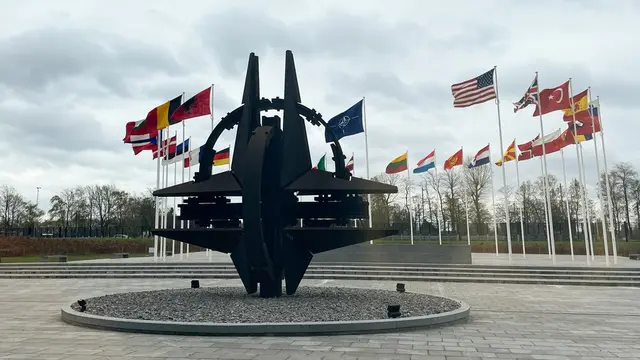NATO's rhetoric of painting China as an aggressive power has created a false sense of insecurity in Asian countries and its citizens, which has prompted countries to increase their military expenditure and engaged in arms race. And their existence and expansion has also undermined the non-aligned and neutral status of certain countries, and put international trade and economic cooperation in jeopardy, a leading Malaysian analyst said.
A tool of the U.S.
Having outlasted its original purpose, the continuation of NATO is having a destabilizing effect on global affairs as the bloc seeks to remain relevant in the emerging multipolar world, Lee Pei May, a political expert at the International Islamic University Malaysia, told Xinhua in a recent interview.
She said the military alliance, though formed with European partners, has fully become subservient to the will of the U.S., which acts unilaterally while expecting the quiet compliance of other member states.
"We are increasingly seeing how NATO has evolved to serve the interests not of all the members but specific members, such as the U.S. Therefore, NATO can no longer provide the kind of stability through collective defense that other members desire, but has instead become a tool used by the U.S. to maintain its preeminent position," she said following the NATO Summit in Vilnius, the Lithuanian capital, which framed China as a "systemic challenge to Euro-Atlantic security."
Lee said NATO's continued confrontational rhetoric has not only been directed against its perceived enemies in Europe but has now spilled over into Asia, with the U.S.-led alliance posturing itself against China, putting international trade and economic cooperation in jeopardy.
Pressing countries to take side
Moves to pressure members of the Association of Southeast Asian Nations (ASEAN) would also have detrimental effects on the region should member states cave in and begin to take sides against China, a key trading partner, Lee added.
NATO's singling out of China as an adversary has drawn backlash. Critics described NATO's latest divisive rhetoric as a product of Cold War mentality and ideological bias, and cautioned that NATO's expansion and responses to the Ukraine crisis could potentially jeopardize global security, and may undermine the non-aligned and neutral status of certain countries.
Urging ASEAN to instead maintain its centrality and neutrality and focus on economic and trade development, Lee said ASEAN members are eligible to voice their concerns and maintain their position by rejecting attempts to draw them into any alliance.
Painting China as an aggressive power is sheer fearmongering, which "gives a false sense of insecurity to Asian countries and its citizens," she said, adding that NATO's senseless warmongering may prompt countries to "prioritize increasing their military expenditure and engage in arms race when there is no actual threat."
"Countries also became skeptical of each other's intentions and became less likely to explore new areas of cooperation except for security reasons. We can see the impact of this uncertainty on global growth as investors and businesses are reluctant to invest and expand," she said.
(Xinhua)
 简体中文
简体中文

